Spring Traditions and Holidays in Bulgaria
Bulgarians love to celebrate and their calendar is full of traditional and other festivities. The extent to which some of the more traditional holidays are celebrated may vary from region to region and the folklore traditions are more prevalent in rural Bulgaria than in the larger towns. A very important role is played by the Name Days. Most Name Days are fixed calendar days although some are related to religious events such as Easter and therefore fall on different dates each year.Friends and family are free to visit those celebrating their name day, bringing gifts and flowers. Typically the person celebrating, will also share out chocolates or other treats amongst his work colleagues on that day.
Not only do the Spring months mark one of the most charming times of the year to experience Bulgarian cultural and folklore traditions such as the Martenitsas, but also some of Bulgaria's most significant holidays (such as the National Day and Easter) are celebrated at this time of year. Here are just some of the celebrations one may come across.
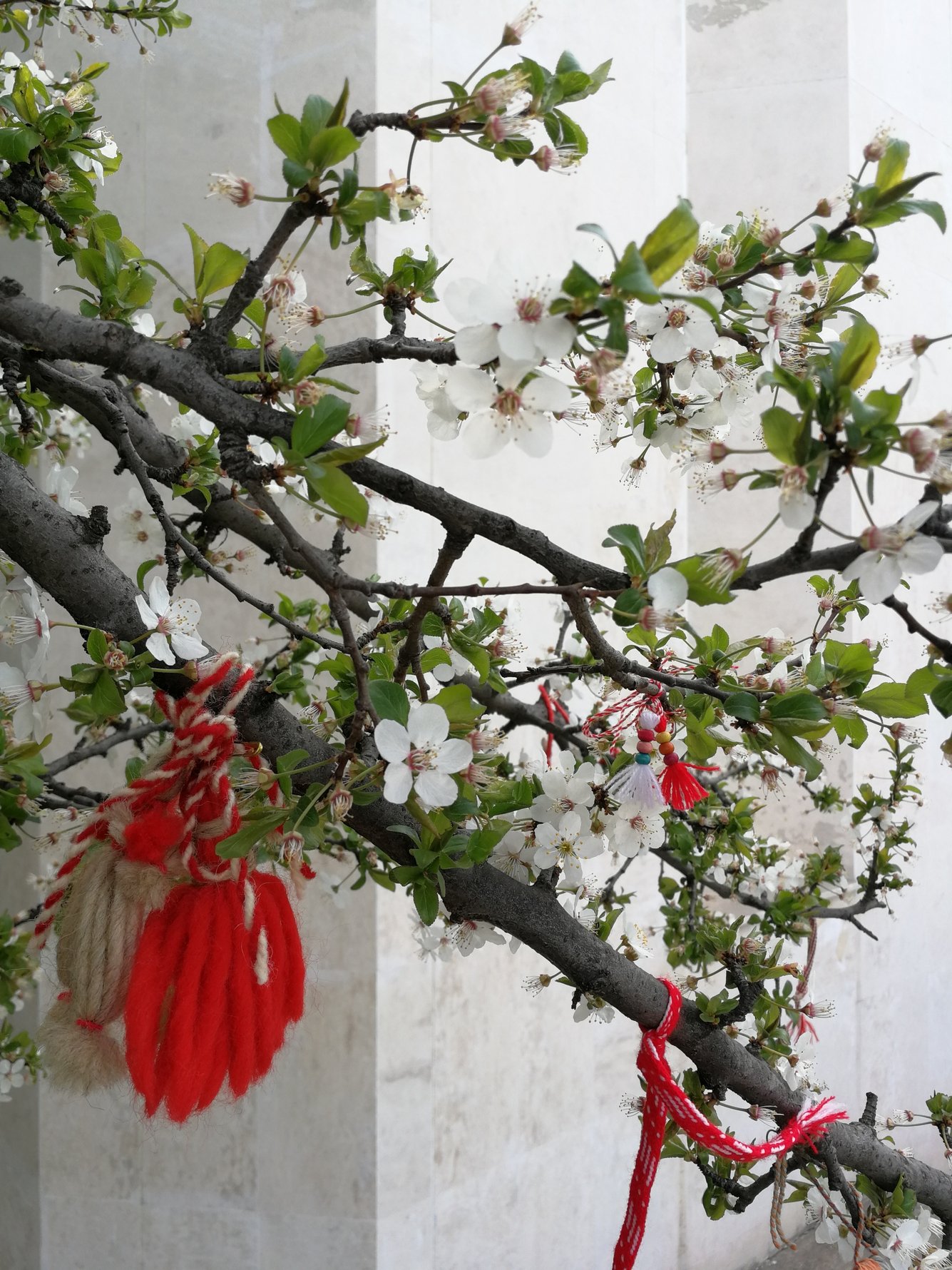
The first of March and Martenitsas
March is generally known as the woman's month because the weather is said to be as moody as a woman's mood swings (Cold harsh winter/ warm and pleasant spring)"Chestita Baba Marta" is how Bulgarians greet each other on this day. They then present each other with martenitsa's. Red and white woollen threads entwined, symbolising health and happiness for the coming months. You will see stalls all over town selling martenitsas, starting at around 50 stotinki for the most simple ones. Each year the assortment on offer gets more elaborate. Martenitsas are usually pinned to lapels or tied around wrists and worn till the first stork is seen. They should then be tied on a fruit tree or buried under a stone whilst making a wish.
9th March Mladenitzi (The day of the Holy Forty Martyrs)
It is believed that on this day god drives forty hot spikes into the soil and the sun turns to summer. It is time to sow and plant. Housewives should cook 40 stuffed peppers and everyone should try to eat 40 different items on this day as a protection against measles.
Sirni Zagovezni
Celebrated on the last Sunday before Lent, the rituals are to ensure fertility, prosperity and health. The younger generation also seeks forgiveness from the older generation on this day and in the home games are played with the children by suspending a bit of coal, an egg and some cheese in turn on a red thread hanging from a ceiling beam. As the symbol swings round in circles so the children must try and catch them with their mouths.
Trimiro
This is a full three day fast, no food or water, following Sirni Zagovezni. On the third morning those that have been fasting go to church for communion before returning to their home and sitting down to feast with relatives and friends.
Todorovden
Always celebrated on a Saturday, 43 days before Easter, Todorovden is also known as Horse Easter. The health of the working horses is celebrated and in villages across the country you will see horses decorated with red pompoms and crowds gathering in nearby fields to watch young men racing the horses.
25th March Blagoveshtenie (The Annunciation)
According to tradition this is the day when migratory birds such as storks and swallows return, marking the awakening of spring in nature. Homes are cleaned and garbage is burnt to get rid of any illnesses from the past year.
Lazarovden
Always celebrated on the Saturday, a week before Easter this is a 'coming of age' celebration for young girls known as "lazarki". The maidens are dressed in colourful tradional costumes, with wreaths of flowers in the hair, singing and dancing as they go from home to home.
Tsvetnitsa
This is also the orthodox 'Palm Sunday'. Most people go to church on this day, they buy some willow twigs which are blessed and then tied to the entrance of the home as a proclamation of faith in the resurrection of christ and also for good health. In rural areas rituals with the "lazarki" continue.All who are named after flowers and trees celebrate their name day on this day.
'Velikden' Easter
As the Bulgarian name implies "Velikden" (great day), Easter is one of the most significant holidays in the Bulgarian calendar and starting with Palm Sunday, the holy week leads up to the Great Day.
6th of May - Georgievden
St. Georges Day is celebrated in Bulgaria on the 6th May and traditionally roast lamb (usually whole) is eaten on this day. St. George, the dragon slayer is celebrated as the patron saint of livestock.
21st of May – Konstantin & Elena
According to legend both Konstantin & Elena were selected by God to be his assistants, after they showed courage and faith by walking on glowing embers with bare feet. This day is celebrated by fire dancers in the Strandzha Mountain region.


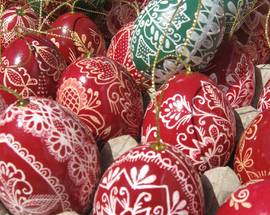
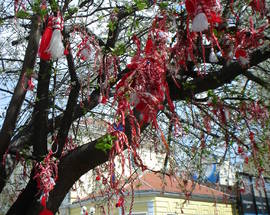
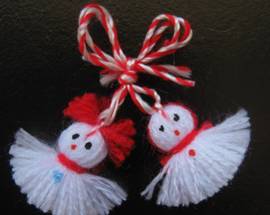
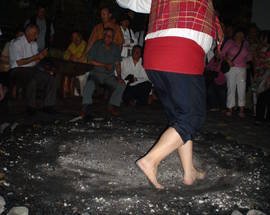



Comments